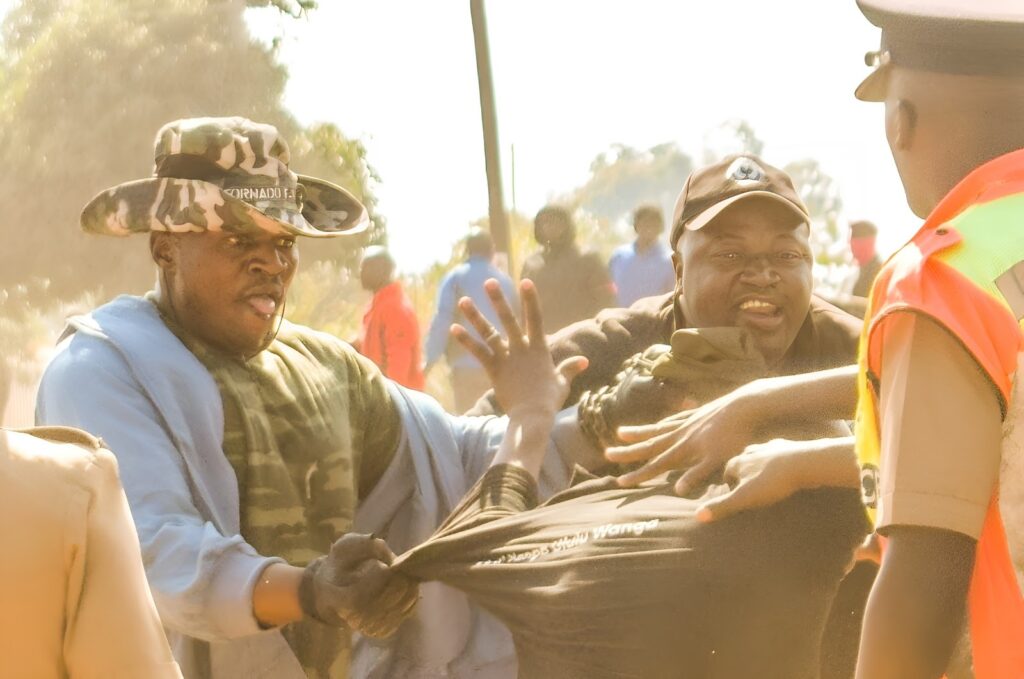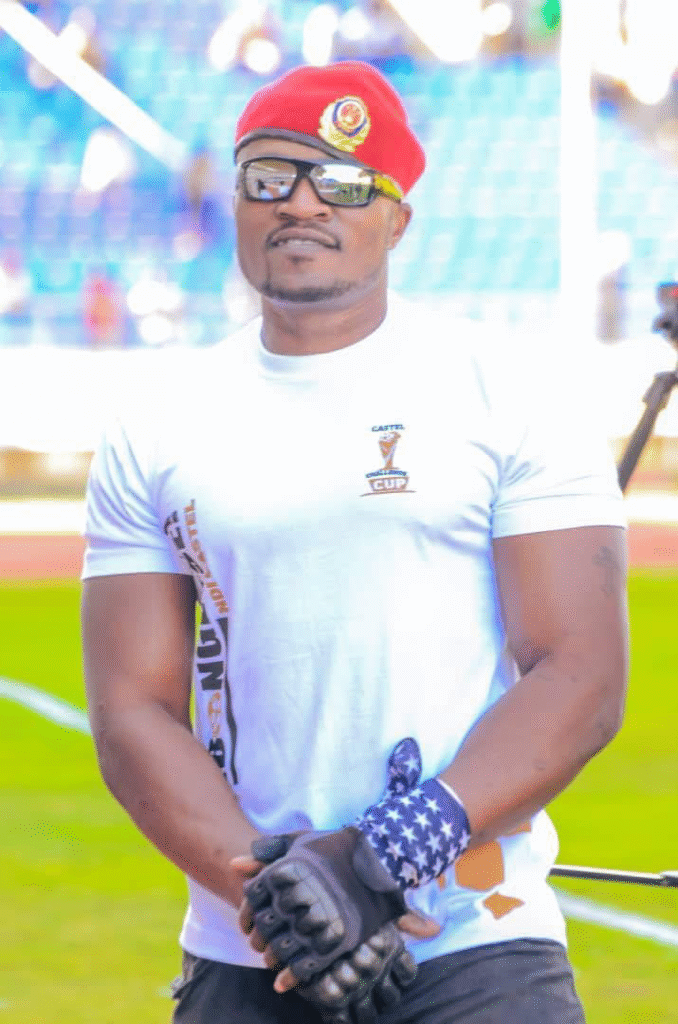A chilling investigation by The Pangolin can now reveal that the brutal June 26, 2025, assault on controversial activist Sylvester Namiwa was not an act of random political violence but a fallout of a shady deal gone sour, involving unpaid hired thugs, internal betrayal, and a trail of dirty money allegedly funneled by senior Democratic Progressive Party (DPP) operatives.
Using interviews, video and photo evidence, and insights from close associates and sources within the political underground, The Pangolin has uncovered the disturbing anatomy of a transaction that collapsed into bloody revenge.
On the morning of June 26, as the nation braced for yet another politically charged protest led by Namiwa, a group of masked men emerged from an unusual location, Lilongwe Girls Secondary School cemetery.
Minutes later, violence erupted. A public address vehicle was smashed. A minibus was torched. And Namiwa himself was chased, whipped, and beaten with machetes and clubs by a group of men.
What was first suspected to be state-sponsored suppression has since unraveled into something even murkier.

Central to the violence was one man, Nelson Chipokosa, a former nightclub bouncer turned political enforcer. He’s not a stranger to violence, or to Namiwa himself. Wearing a camouflage bucket hat marked “FORMAD01,” black gloves, and a blue long-sleeved shirt, Chipokosa was captured on video wielding a whip and leading the charge in the attack.
Multiple sources, including gym mates and former nightclub associates, identified him instantly.
One said: “I was shocked. He is someone very close to Namiwa. They spoke. They have planned some missions together before. And now he was leading a mob to beat him senseless?”
Chipokosa’s sudden leap in lifestyle also raised eyebrows.
No longer working as a bouncer, he recently constructed a house in Lilongwe’s Area 23. “It’s all money from political violence,” one associate bluntly told The Pangolin.
So where did the money come from?
Two highly placed sources, one within the DPP itself, revealed that during the last two demonstrations in November last year and February this year, a K70 million budget was drawn by party operatives connected to Norman Chisale and Alfred Gangata to sponsor “anti-government” demonstrations using civil society fronts like Namiwa’s Centre for Democracy and Economic Development Initiatives (CDEDI).
The plan was to use this money to hire people like Chipokosa to lead the hoodlums to create havoc during the demonstrations while providing security to Namiwa and his colleagues.
But the deal backfired. According to insiders, only part of the money reached the hired enforcers. Some of the cash was pocketed by the middlemen including Namiwa. Namiwa’s failure to settle what was owed triggered a mutiny within the paid youth militia.
“This is why they beat him,” said one of the sources. “They weren’t paid. And in their world, when you eat alone, you bleed alone.”

Namiwa has since confirmed that he knows Chipokosa and have worked together before, “coordinating previous demonstrations”.
Chipokosa has even been boasting to friends and associates about how closer he was to Namiwa and about receiving calls from his “boss”.
But when The Pangolin asked Namiwa about this relationship, he offered evasive replies: “I might have worked with him indirectly,” he said, adding, “Let me not speak about those things.”
Chipokosa, when contacted, was even more blunt: “Hang up this call. Who gave you my contact?”
The attack on Namiwa fits a broader pattern of organized political violence being used as a campaign tactic in Malawi’s tense pre-election period.
Sources say Namiwa’s demonstrations had long been bankrolled by DPP financiers. This time, the objective of his men was different.
“Not joining Namiwa but disrupting the demonstration and get personal on him for deceiving them during the previous demonstration,” revealed a DPP insider.
According to the same source, ahead of such demonstrations money has always been channeled via shadowy networks from senior DPP officials, who use fronts like CDEDI to create the illusion of civil resistance while staging controlled chaos.
“They even use street kids,” the source added. “It’s all organised. Political violence is now a business.”
Soon after Namiwa was beaten and tried to be abducted, fingers pointed at the MCP. However, in an interview MCP spokesperson Jessie Kabwila was quick to distance the ruling party from the assault.
“Give us proof. This is an election year, and people may just want to tarnish our image,” she told The Pangolin. Seems Kabwila is vindicated following the new revelations.
President Lazarus Chakwera, speaking during his state visit to Nigeria, condemned the violence and ordered investigations. “I have directed all relevant state agencies to act swiftly and decisively… and ensure all those who violated the law are held accountable.”
According to National Police Spokesperson Peter Kalaya, the police have made “important leads” in the investigation. A preliminary brief has since been submitted to the President.
Presidential spokesperson Anthony Kasunda confirmed that the President was briefed by both the Defence and Homeland Security ministers.
What this investigation uncovers is not just an isolated act of thuggery, but a microcosm of Malawi’s corrupt, unregulated political machinery. Civil society figures like Namiwa have become transactional players in a dark alliance with opposition politicians.
Youths, lured with promises of quick cash, are being weaponized. Political parties, especially the DPP, are funding covert operations behind a curtain of civic engagement.
Malawi’s 2025 election is barely two months away, but instead of policy debates or manifestos, the streets are teeming with the stench of betrayal, fake activism, and politically orchestrated violence.
As one insider said with chilling honesty: “It’s not about change. It’s about power—and whoever pays the most gets the muscle.”








